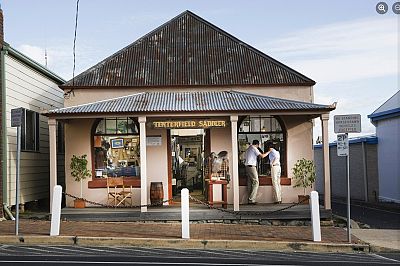Overcoming Business Founder Syndrome in 2024 – Empower Your Transition to a Successful Exit

Overcoming Business Founder Syndrome in 2024
Business Founder Syndrome (BFS) is a term that encapsulates the challenges and issues faced by business owners who have nurtured their enterprises from inception. These founders often find it incredibly difficult to step back or disengage from their businesses. As a business broker I encounter BFS frequently, and I thought it was time to explore how it not only affects the founders themselves but also significantly impacts the process of finding a suitable buyer when it comes time to sell the business.
Why Do Owners Develop Business Founder Syndrome
At its core, BFS is characterized by a founder's deep personal connection to their business. This connection is not merely financial; it is emotional, and psychological, and often forms a large part of the founder's identity. Founders with BFS are typically heavily involved in all aspects of their business, from strategic decision-making to daily operations.
Symptoms of BFS
Micro-Management: Founders may struggle to delegate tasks, believing that no one else can do the job as effectively as they can.
Resistance to Change: They may resist new ideas or innovations, especially if these suggest a significant shift from the original vision or operations of the business.
Emotional Attachment: The business often represents more than a livelihood; it is a personal legacy, making objective decision-making challenging.
Implications for Business Succession
The presence of BFS significantly complicates the process of selling a business. Prospective buyers are often deterred by the over-reliance on the founder, worrying about the business's sustainability without their involvement.
Difficulty in Transitioning Leadership: A founder deeply involved in all aspects makes it harder to envision the business operating independently.
Valuation Issues: BFS can lead to unrealistic expectations regarding the business's value, as the emotional attachment inflates the founder's perception of its worth.
Dependency Risks: Businesses heavily dependent on their founders may appear less attractive to buyers, who foresee challenges in transferring customer relationships and internal processes.

Challenges in Selling Businesses with Multiple Owners
An additional complexity arises when a business has multiple owners, all of whom are integral to its operations. In such scenarios, the task of replacing not just one but several key individuals can be daunting for potential buyers. This multi-owner dependency can significantly hinder the sale process, as buyers may be reluctant to take on a business where the departure of these key figures could lead to instability or a decline in performance.
Steps For Overcoming BFS in 2024
To mitigate the effects of BFS and make the business more attractive to potential buyers, several strategies can be employed:
Strategic Delegation: Gradually delegating responsibilities to trusted team members can help reduce
the businesses dependence on the founder.
Building a Strong Management Team: Developing a competent team that can run the business independently reassures buyers of the business's viability post-transition.
Documenting Processes: Standardizing and documenting business processes ensures that the business can maintain operational consistency without the founder.
Professional Counselling: Founders can benefit from professional advice, including coaching and mentoring, to address the emotional aspects of letting go.
Developing an Exit Strategy: A well-thought-out exit strategy can facilitate a smoother transition by setting clear goals and timelines for stepping back.
Preparing for an Extended Transition Period: Planning for a longer transition period with the business buyer allows the new owner to gradually acclimatize to the business while implementing measures to reduce owner dependency.
Case Study: Industrial Business Turnaround
A relevant case study involves an industrial business we represented, where the owner was working 60 hours a week and his wife contributing 30-40 hours. When we initially took this business to market, potential buyers were deterred during the prospectus review stage due to the high level of owner reliance. Recognizing this challenge, we advised the owners to take the business off the market.
During this period, the owners promoted a high-performing team member to an operational manager role. They dedicated time to documenting and improving processes, thereby systematically reducing the business's dependence on them. This strategic move proved to be transformative.
Six months later, the business re-entered the market with a new value proposition, highlighting its improved operational structure and reduced owner involvement. The impact was immediate and significant. The business attracted a broader range of interested parties and ultimately sold for 25% above the previous asking price in less than four months. This case underscores the value of addressing owner reliance and illustrates how strategic internal changes can substantially enhance a business's marketability and value.
Conclusion
Business Founder Syndrome is a significant barrier to business succession and sale. Founders need to recognize the symptoms and take proactive steps to reduce their business's dependence on them. This not only facilitates a smoother transition but also enhances the business's attractiveness to potential buyers, ultimately contributing to a more successful and profitable sale.
By addressing the challenges of BFS, business owners can ensure that their legacy continues to thrive, even in their absence. This process, while challenging, is essential for the long-term sustainability and success of the business they have worked so hard to build.
Tags: business owner small business tips exit strategy
About the author

Justin Bunt
Business Broker
Justin joined the MMJ Business Sales team in 2020 as a Business Sales Consultant. He brings a history of business ownership including multiple star ...









